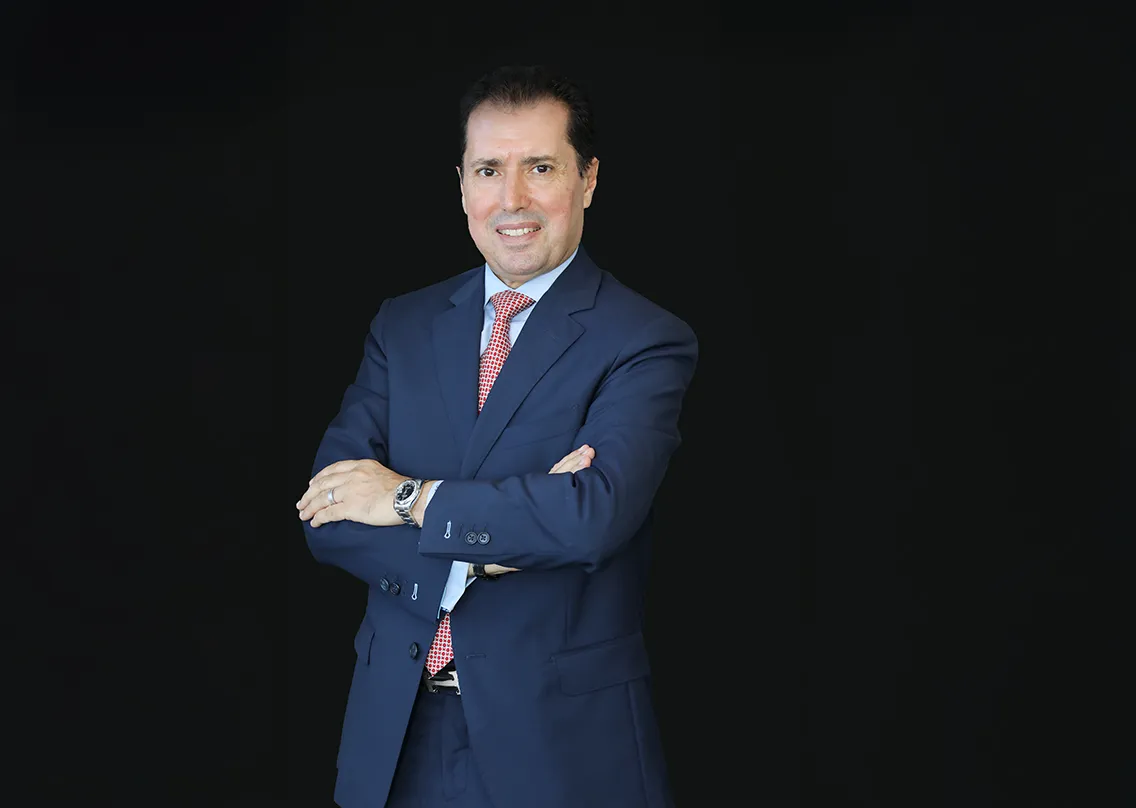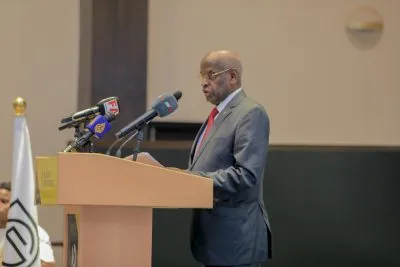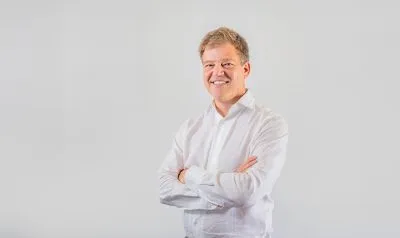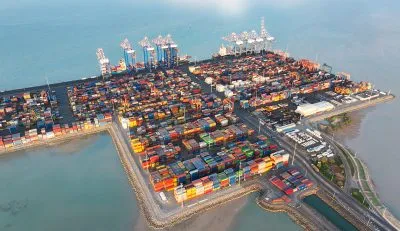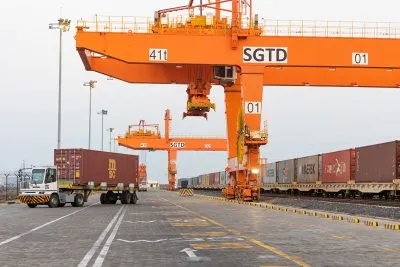One year since the first edition of the forum organised by the Djibouti Sovereign Wealth Fund (FSD), what is your assessment of the impact of the conference?
It is important to understand that a forum like this does not produce an immediate effect, but lays the foundations for a long-term dynamic. Investment is like a marriage: you have to get to know each other, exchange ideas and build a relationship before considering a concrete commitment.
At this stage, we have laid a solid foundation in terms of visibility and networking. From a quantitative point of view, the results are impressive. Thanks to our partnership with IC Publications, we have reached more than a million people through social networks and publications like African Business and African Banker, as well as New African magazine.
More than 400 participants attended last year’s forum, including around 100 foreign investors and 18 international media outlets, including CNBC, the Financial Times and USA Today. A total of 280 institutions – with assets worth $2.5 trillion – were represented, and we welcomed 46 high-level speakers.
In qualitative terms, the forum helped to reinforce the perception of Djibouti as a key economic hub in the region. Investors discovered the country for the first time and we initiated strategic discussions which we hope will lead to concrete commitments in the coming years.
We also signed two memoranda of understanding, with Paix Data Centres and Tamini Assurance.
What are this year’s priority sectors put forward to attract new investors?
Our priorities are clear and in line with the Vision 2035 of His Excellency the President of the Republic: tourism, renewable energy, finance, digital technology and logistics. Tourism is a major opportunity that is still largely untapped. Djibouti has unspoilt beaches and islands, exceptional landscapes and unique biodiversity.
Renewable energy is another strategic focus, essential for ensuring the country’s energy autonomy. Several large-scale projects have already been launched, notably in partnership with AMEA Power and Neo Themis. We aim to achieve 100% renewable energy by 2035 and the FSD is playing a key role in financing these initiatives.
Finance also occupies a central place, with the ambition of positioning Djibouti as a banking and investment hub for East Africa. The arrival of the Egyptian bank Misr and the development of innovative financial products such as crowdfunding and leasing are strengthening our position in this sector.
The country is also focusing on digital technology. Thanks to its 10 undersea cables, Djibouti is a global internet crossroads. We are working on data centre and technology hub projects to attract companies specialising in new technologies.
Finally, logistics remains the pillar of the national economy and is the subject of constant modernisation efforts. Other sectors are also emerging, such as education, health and industry, which will play a key role in the country’s economic diversification.
How far has the FSD advanced since its creation in 2020?
During my three years here we have built a competent team, defined investment priorities and established solid governance. Today, we own 100% of Djibouti Télécom, hold 40% of Great Horn Investment Holding (GHIH) and have developed a diversified investment portfolio.
We have launched the country’s first crowdfunding company and invested in renewable energies. We financed the construction of the first university restaurant and we are working on the creation of a data centre to support the digital transformation. We have a strong ambition: to build up intergenerational savings by diversifying our assets both nationally and internationally. Our current objective is to diversify risk and achieve a balanced distribution of 50% internal and 50% foreign investments, drawing inspiration from successful models such as Singapore and the Gulf. We are also considering co-investments with other African and international sovereign wealth funds to maximise our capacities and attract more capital.
Can Djibouti become the principal gateway to a sub-region of 400m consumers?
Djibouti is uniquely positioned: we are at the crossroads of Africa, the Middle East and Asia. Our logistics and digital infrastructure make it an ideal platform to serve the region. On top of that, our monetary stability is an undeniable asset. Unlike many emerging countries, Djibouti has no exchange rate risk. The Djiboutian franc has been pegged to the dollar since 1949, which guarantees valuable stability for foreign investors.
Add to this a favourable regulatory framework, an attractive tax system and a pro-business environment, and you have a destination of choice for international investors.
Djibouti is often compared to Singapore because of its strategic positioning. What steps does it need to follow to get closer to this development model?
Djibouti is following a trajectory inspired by Singapore; in the 1970s, it was a small marshy island. In 30 years it had established itself as a global financial and logistics centre. Djibouti shares several of its characteristics: a strategic location, a manageable size and exceptional digital and maritime connectivity. Today, Singapore has around twenty undersea cables, Marseille around 15 – and Djibouti already has 10, with more in progress. We want to capitalise on this digital infrastructure to develop a competitive digital economy, just as Singapore has done with its data centres and technology hubs.
How do you see the future development of the Djibouti Forum?
Djibouti aims to make the Forum a key event in Africa for international investors, like the Doha Forum in the Middle East or Davos in Europe. The objective is to make it a strategic platform for those interested in opportunities in Africa.
Rather than a mass event, we are focusing on quality interactions between key players. This year, we are expecting 150 to 200 international participants; the aim is to double this figure within five years.
Ultimately, the Forum should establish itself as a catalyst for investment, by promoting Djibouti’s unique assets: stability and political will, a fully convertible currency, geostrategic position and security (thanks in part to several foreign military bases).
The aim of this forum is also to strengthen Djibouti’s international image. One of the major challenges for Djibouti, as for Africa in general, is the gap between perception and reality. All too often, investors are influenced by a biased view of the continent, whereas the situation on the ground is very different.
What we are doing with the Forum and our communication activities is inviting investors to come and see for themselves. There is a huge difference between reading a report and visiting the country in person: those who come leave convinced of the country’s potential.
If you had to convince a foreign investor to invest in Djibouti, what would be your key argument?
Investing in Djibouti today means gaining an early mover advantage. The Djiboutian economy is still young, but it is growing at a steady rate of 6% to 7% per year. In five or ten years, the current opportunities will have been taken.
For investors, Djibouti offers a rare combination of advantages: political and monetary stability, political will, a pro-business environment, exceptional digital and logistical connectivity, and access to a regional market of 400m consumers. Those who understand this dynamic now will have a head start.
Want to continue reading? Subscribe today.
You've read all your free articles for this month! Subscribe now to enjoy full access to our content.
Digital Monthly
£8.00 / month
Receive full unlimited access to our articles, opinions, podcasts and more.
Digital Yearly
£70.00 / year
Our best value offer - save £26 and gain access to all of our digital content for an entire year!

 Sign in with Google
Sign in with Google 